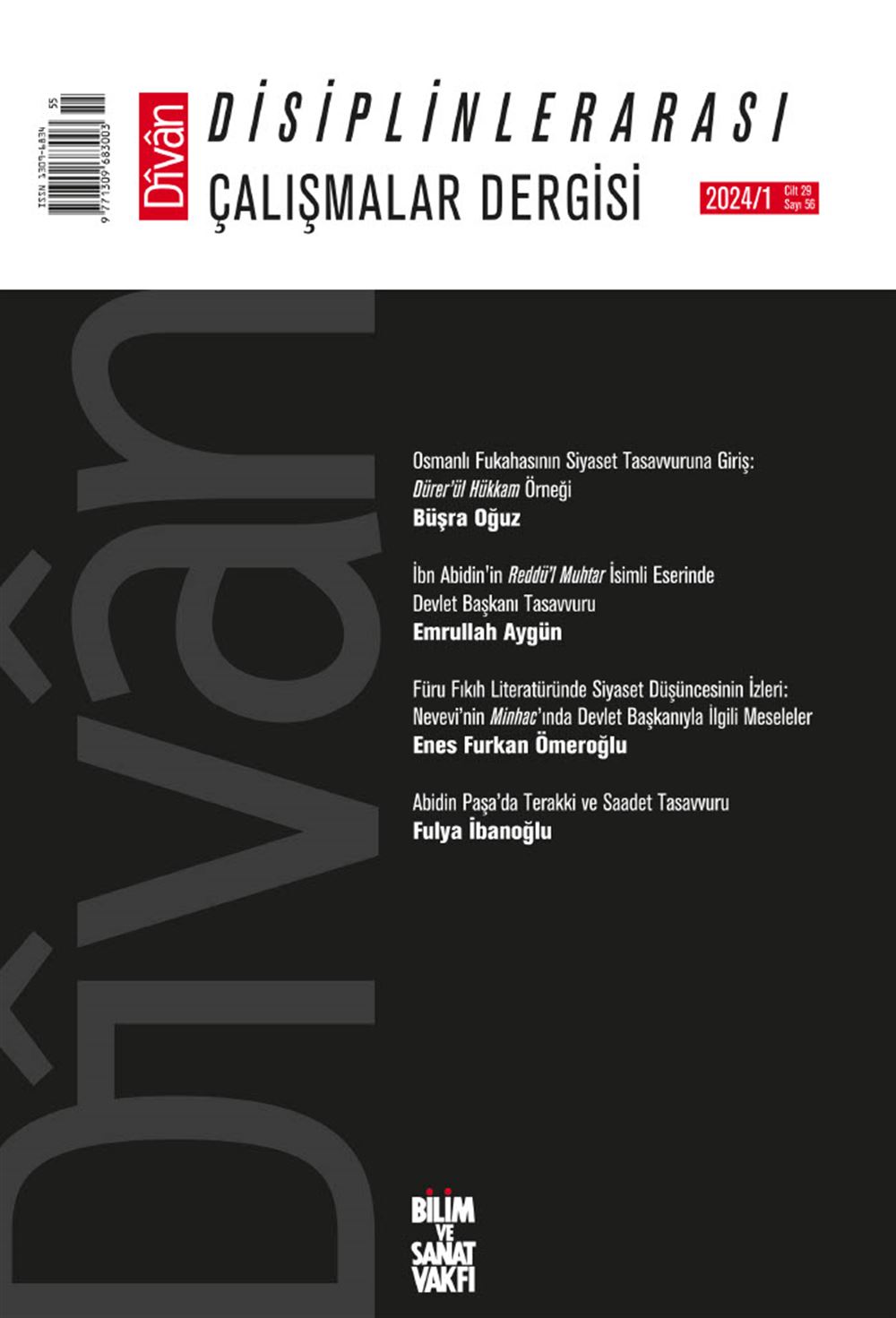Disiplinlerarası Çalışmalar Dergisi Sayı 56
Articles
This article, which aims to make a modest contribution to these studies, aims to shed light on the conception of the head of state in the works of furû' fiqh by focusing on the Ottoman jurist Molla Husrev's (d. 885/1480) Durer al-ḥukkām šerḥi Ġurer al-ʾaḥkām. The work will be analyzed together with Hasan ibn Ammar al-Shurunbulali's (d. 1069/1658) Gunyet al-zawi al- aḥkām fi bugyeti Durer al-ḥukkām and Abdulhalim ibn Pir Kadem's (d. 1088/1677) Al-Kashf bi-rumuzi al- Ġurer al-ʾaḥkām wa tanwir Durer al-ḥukkām, which were written in different geographical locations during the same time period. As a matter of fact, in addition to fiqh texts, commentaries and glosses also provide important information on the political- jurisprudental of their respective periods.
Büşra OĞUZIn this respect, the main theme of our study is the perception of the head of state in the works of jurisprudence in the context of Redd al-muhtār. In our study, some of the issues related to Islamic political thought in Redd al-muhtār, which could be subject to more detailed evaluations, will be discussed in order to make a limited contribution. In this way, the claim that the works of jurisprudence other than ahkām al-sultaniyya literature are themselves sources of Islamic political thought will be justified.
Emrullah AYGÜNThis study aims to justify the claim that the texts of furū fiqh are the source of Islamic political thought in the context of Minhāj al-tālibīn and ‘umdat al-muftīn by al-Nawawī (d. 676/1277), one of the most important classics of the fiqh literature of the Shāfi‘ī madhhab. The fact that Minhāj refers to the head of state in many subheadings of fiqh, including ibādāt, as well as the presence of a separate subheading on the imamate in the work, provide important clues to the justification of this claim.
Enes Furkan ÖMEROĞLUThe use of the word terakki in the texts of different names in different periods, in terms of temperament and profession, and the similarities with its meanings in ancient literature and the points where they differ will contribute to both a better understanding and the intellectual biographies of the names who use it in their texts. As a matter of fact, the use of the word terakki by Abidin Pasha, a bureaucrat of Sufi disposition, in his works on exegesis and ethics in Devr-i Hamidi, is a remarkable example of what he understands when he says happiness.
Fulya İBANOĞLU





